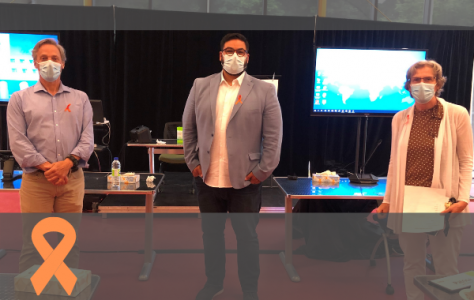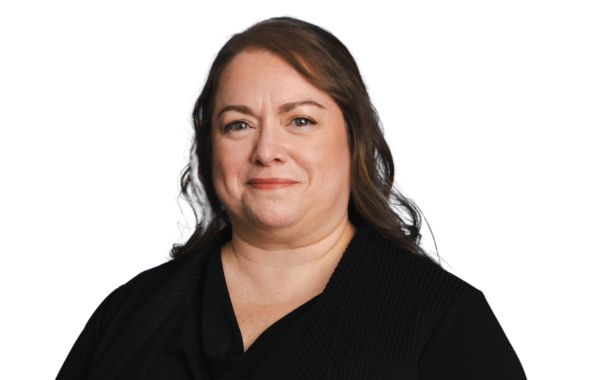
Pictured: Professor Alain Pinsonneault, Robert Auclair, Marianne Vandenbosch
Robert Auclair, a current participant of the program, shares a moment with his peers in honour and remembrance of all First Nations, Inuit and Métis on the devastation Canadian residential schools have had on its cultures.
On June 3, orange ribbons were distributed to and worn by the class in remembrance of the children and families involved – both near and far – in the former Kamloops residential school discovery of 215 children buried on its school grounds. After a minute of silence to honour those children hurt and lost in this tragedy, our fellow participant Robert, a member of the Cree Nation of Eeyou Istchee and Business Development Officer for CREECO, addressed the class.
Robert shared fond memories of his grandparents, whose strength of character combined with their traditional lifestyle and remote location, may have contributed to his mother only attending residential school for two years as a teenager. Robert related that recently in an interview, an Indigenous professor in western Canada stated that it is believed that this trauma caused by the residential school system may take up to 5 generations to heal.
Robert, whose late mother was a residential school survivor herself expressed deep sorrow and pain for those directly affected by the horrific findings in Kamloops and similar occurrences elsewhere across the country. What we refer to as Canadian residential schools were ‘boarding schools’ for Indigenous peoples funded by the Canadian Government and run by different churches, the largest being the Roman Catholic Church.
These schools caused tremendous, long lasting harm to Indigenous children and their families by removing them from their families, depriving them of their ancestral languages and their cultures, exposing many of them to physical and sexual abuse and forced enfranchisement. The profound scars and impacts of this treatment of the First Nations, Inuit and Métis persists. The stories are out there – we need to listen and learn, so that we can all work together towards a continued path to reconciliation.
If you would like to learn more about the residential school era please visit the National Centre for Truth and Reconciliation website at https://nctr.ca



